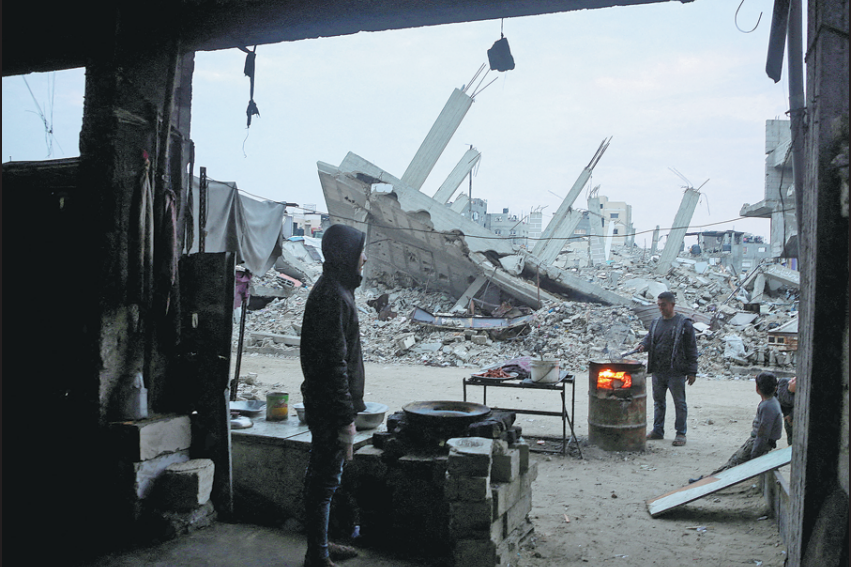Variants raise stakes in SE Asia battle


The threat from more transmissible coronavirus variants, including one first detected in India, presents Southeast Asia with its most severe challenge since the pandemic began, experts say.
Maurizio Trevisan, dean of the College of Health Sciences at Vin-University in Hanoi, said Vietnam is among those countries in the region experiencing "the most difficult wave" of the pandemic.
Vietnam had 276 cases detected on Sunday alone, the highest ever in the country, according to World Health Organization data. The country reported its first locally transmitted COVID-19 cases in 35 days on April 29; as of Sunday, it had recorded 4,175 confirmed cases.
Now circulating in the region are several virus variants, not only B.1.617, Trevisan said.
The B.1.617 variant first found in India has spread to 44 countries including Singapore, Indonesia, Malaysia, Thailand and Cambodia, the WHO said in its weekly update last Wednesday. The variant may be present in five more countries, the agency said.
The WHO declared B.1.617 a variant of global concern on May 10, the fourth variant to be designated so after those first detected in the UK, South Africa and Brazil. It has three sub-lineages: B.1.617.1, B.1.617.2 and B.1.617.3.
In Vietnam, nearly 86 percent of positive cases imported carry the B.1.1.7 variant, first identified in the UK, and over 14 percent carry B.1.351, first detected in South Africa, according to online media VnExpress, citing findings by the Pasteur Institute in Ho Chi Minh City.
Laos ordered a lockdown for the capital Vientiane and the closure of borders on April 21 after detecting cases linked to neighboring Thailand. Confirmed cases had since increased from 60 to 1,570 by Sunday.
'Definitely a risk'
Nicholas Thomas, associate professor in health security at City University of Hong Kong, said: "The variant (circulating in India) has now been found in most Southeast Asian countries and many of which have only developing health systems. There is definitely a risk."
Thailand reported its first case of the B.1.617 variant on May 10, according to the Bangkok Post. On Monday, the country logged its highest single-day increase in new cases at 9,635, of which more than 70 percent are linked to prison clusters.
Thailand began experiencing a nationwide outbreak in early April-fueled by a fast-spreading variant first identified in the United Kingdom.
"What is worrying us now is the possible arrival of this new coronavirus variant through the country's border areas, given the fact that more than 15,000 illegal migrants have sneaked in over the past four months," said Prasit Watanapa, dean of the Faculty of Medicine at Siriraj Hospital, as quoted by the Bangkok Post.
































